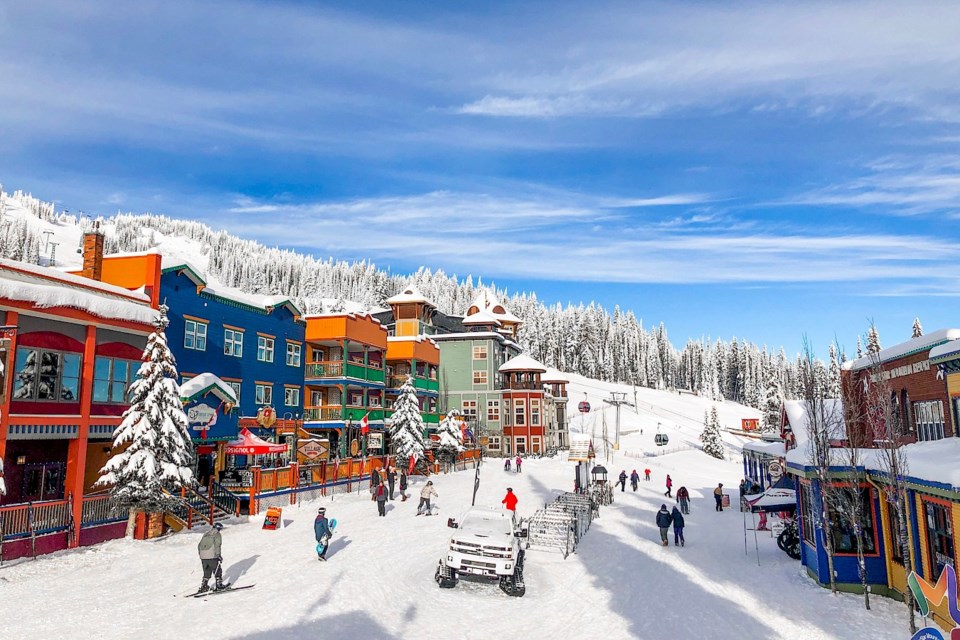B.C. recreational property sales continue to come off their pandemic-era highs, but rising interest rates are just one of several factors at play as the market seeks balance.
“There was a real frenzy in the pandemic years. It created a lot of froth in the market,” said Christopher Alexander, president of Re/Max Canada. “It’s really getting back to normal.”
The good news is that prices are holding steady even as sales continued to slide this year, underscoring the limited impact of rising interest rates.
“Sales are down pretty aggressively, but prices have stayed in pretty decent shape,” he said.
Within Western Canada, ski hill visitation is stabilizing as international tourists return but real estate sales at B.C. resorts such as Whistler, Big White in the Okanagan and Mount Washington in Vancouver Island have fallen.
Whistler, which is exempt from the foreign-homebuyer ban, saw 941 transactions in 2021. That fell to 554 sales in 2022 while sales in the first nine months of this year totalled 360. Prices over the period have held within a fairly close range, averaging between $1.5 million and $1.8 million, with the exception of the latest quarter that saw prices pop to an average of nearly $2.2 million.
“Big White? Lowest sales numbers in three years,” Alexander said.
In the Comox Valley, which includes Mount Washington, sales in the first nine months of the year stood at 13 this year, down from 51 in 2021.
“It’s basically been halved every year since ’21,” he said.
The declines are understandable versus record-breaking sales volumes in 2021, which were hard to match as pent-up during the pandemic burst forth in the closing months of 2020 through mid-year 2021.
Rising interest rates through last year compounded the slowdown, although many agents say the buyers most likely to buy in Whistler and other resort municipalities seldom need financing. Recreational property is often a dream purchase, meaning many buyers bring a level of equity and long-term attitude that makes interest rates less of a concern.
“Canadians really aspire to own recreational real estate and they want to own it and keep it in the family and pass it on to future generations,” Alexander said.
This being said, recreational property is vulnerable to market cycles as much as any other class, and a two-year federal ban on foreign buyers of residential properties that took effect in January 2023 have compounded the challenges.
“We have foreign buyers waiting and ready to go but they can’t purchase anything, and there’s no way to get around it,” said Michael Kinghorn, an agent with Re/Max Priscilla in Vernon, which handles sales at Silver Star Mountain Resort.
Australia and U.S. buyers were a significant proportion of buyers at the resort but Silver Star lies within the census boundaries of Vernon, making it one of three resort communities where foreign buyers are banned. (The others include Apex and Sun Peaks.)
Kinghorn doesn’t expect any change until January 2025, when the measure will either end or be renewed.
He expects the Silver Star to be exempt from the province’s new short-term rental regulations because of the community’s seasonal nature, a factor he feels the federal policy should have considered.
“Banning foreign buyers from buying a secondary ski hill residence isn’t going to solve the rental issues that are plaguing the province,” he said. “Resort properties are not long-term rental facilities.”
In the meantime, local buyers with sufficient equity have stepped up.
“We still have a strong market from Vancouver and Ontario, and Alberta as well,” he said. “The markets are a little bit cooler, but we’re still moving and transacting a number of homes.”
Kinghorn says the pace is on par with 2018 and 2019, as the buyers who snapped up building lots in 2021 take occupancy and demand normalizes.
“Silver Star opened up an entire subdivision of new properties up in the Cathedral neighbourhood,” he said. “That was a heady time. … [Now] we’re not seeing the volume because we don’t have the inventory.”
A similar story is playing out across the West, establishing a new baseline for activity in markets across the region as 2024 and the prospect of lower interest rates midyear approaches.
“I think it’s too early to tell which ones are really thriving or not,” Alexander said.




